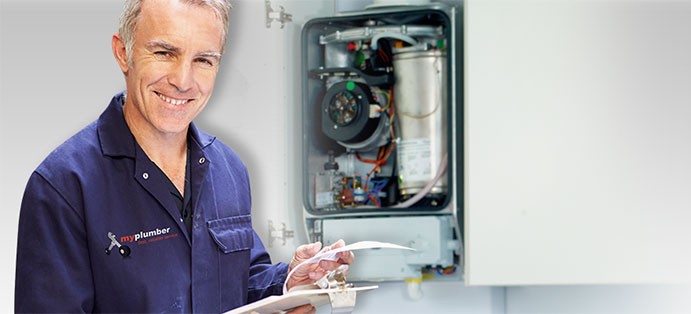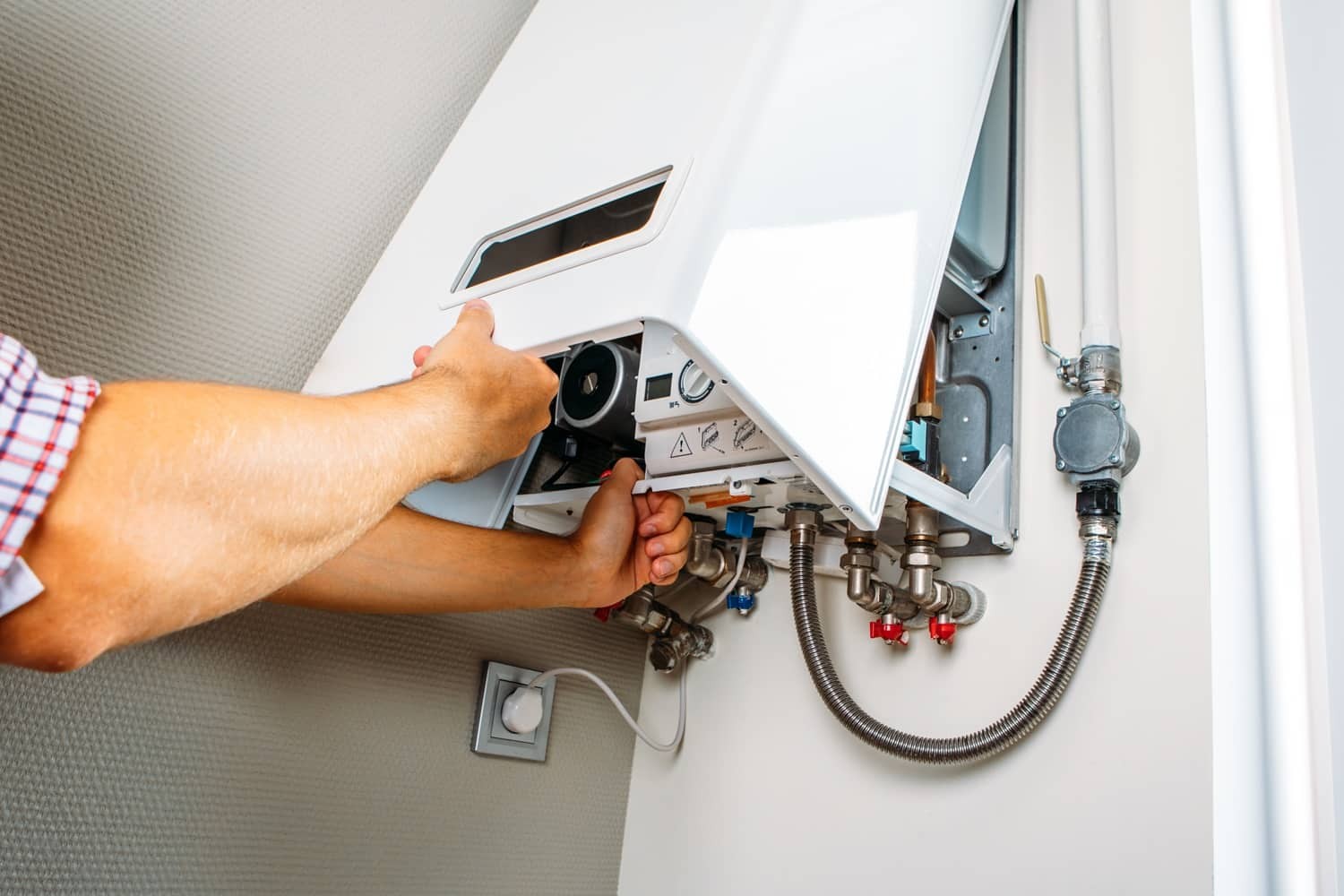Boiler Maintance
Regular boiler maintenance is crucial for ensuring the efficiency and longevity of your heating system. Just like any other appliance in your home, your boiler requires attention and care to function optimally. By committing to routine maintenance, you not only enhance the performance of your boiler but also reduce the risk of unexpected breakdowns.
Regular boiler maintenance is crucial for ensuring the efficiency and longevity of your heating system. Just like any other appliance in your home, your boiler requires attention and care to function optimally. By committing to routine maintenance, you not only enhance the performance of your boiler but also reduce the risk of unexpected breakdowns.
This proactive approach can save you significant amounts of money in the long run, as it helps to identify and rectify minor issues before they escalate into major problems. Moreover, regular maintenance contributes to the safety of your home. A well-maintained boiler operates more efficiently and is less likely to develop faults that could lead to dangerous situations, such as carbon monoxide leaks.
By prioritising maintenance, you are not only safeguarding your investment but also protecting your family’s health and wellbeing. Therefore, it is essential to incorporate regular checks and servicing into your home maintenance routine, ensuring that your boiler remains in peak condition throughout its lifespan.
Summary
Regular boiler maintenance is crucial for ensuring the efficiency and longevity of your boiler system.
Signs that your boiler needs maintenance include strange noises, uneven heating, and a noticeable increase in energy bills.
Annual boiler maintenance by a professional is essential for thorough inspection and cleaning of the system.
Monthly boiler maintenance tasks such as checking the pressure, inspecting for leaks, and testing the thermostat can help prevent major issues.
Seasonal boiler maintenance, especially before winter, is important for preparing the system for increased usage.
DIY boiler maintenance tasks like cleaning the exterior, checking for visible damage, and clearing vents can help keep the system running smoothly.
Professional boiler maintenance by a qualified engineer is necessary for complex tasks like internal cleaning and component inspection.
Neglecting boiler maintenance can lead to reduced efficiency, increased energy costs, and even safety hazards such as carbon monoxide leaks.
Signs Your Boiler Needs Maintenance
Recognising the signs that your boiler requires maintenance is vital for preventing more serious issues down the line. One of the most common indicators is unusual noises coming from the unit. If you start hearing banging, clanking, or gurgling sounds, it may suggest that there is air trapped in the system or that components are wearing out.
Ignoring these sounds can lead to more significant damage, so it’s essential to address them promptly.
Another sign that your boiler may need attention is a drop in heating efficiency.
If you notice that certain rooms in your home are not warming up as they should or if your energy bills have suddenly increased without explanation, it could be a sign that your boiler is struggling to perform effectively.
Additionally, keep an eye out for leaks or water pooling around the boiler; this could indicate a serious issue that requires immediate professional intervention. By being vigilant and recognising these signs early on, you can ensure that your boiler remains reliable and efficient.
Annual Boiler Maintenance

Annual boiler maintenance is a fundamental aspect of keeping your heating system in top shape. Scheduling a professional service at least once a year allows for a thorough inspection and cleaning of your boiler. During this visit, a qualified technician will check for any signs of wear and tear, clean essential components, and ensure that everything is functioning correctly.
This comprehensive service not only helps to maintain efficiency but also extends the lifespan of your boiler. In addition to improving performance, annual maintenance can also help you stay compliant with safety regulations. Many insurance policies require proof of regular servicing to remain valid, so keeping up with annual checks can protect you financially in case of an incident.
Furthermore, a well-maintained boiler is less likely to break down during the cold winter months when you need it most. By investing in annual maintenance, you are making a wise decision for both your comfort and peace of mind.
Monthly Boiler Maintenance
While annual maintenance is essential, incorporating monthly checks into your routine can further enhance the reliability of your boiler. These monthly inspections do not need to be extensive; rather, they should focus on simple tasks that you can perform yourself. For instance, checking the pressure gauge and ensuring it remains within the recommended range is a straightforward yet crucial step in maintaining your boiler’s efficiency.
Additionally, take a moment each month to inspect the area around your boiler for any signs of leaks or unusual smells. If you notice anything out of the ordinary, it’s best to consult a professional immediately. Regularly checking the condition of your boiler can help you catch potential issues early on, allowing for timely repairs and reducing the risk of costly breakdowns in the future.
Seasonal Boiler Maintenance
As the seasons change, so too should your approach to boiler maintenance. Before winter sets in, it’s wise to conduct a thorough seasonal check to ensure that your heating system is ready for the colder months ahead. This includes bleeding radiators to remove trapped air and checking that all thermostats are functioning correctly.
Taking these steps can significantly improve the efficiency of your heating system when you need it most. In spring, when you no longer require heating as frequently, consider scheduling a professional service to clean and inspect your boiler. This seasonal maintenance can help prevent any issues from developing during the warmer months when boilers are often neglected.
By being proactive about seasonal maintenance, you can ensure that your boiler remains reliable year-round and avoid any unpleasant surprises when winter returns.
DIY Boiler Maintenance

Engaging in DIY boiler maintenance can be an effective way to keep your system running smoothly without incurring high costs. There are several simple tasks that you can perform yourself to ensure that your boiler remains in good condition. For example, regularly checking and adjusting the pressure levels is an easy task that can prevent many common issues from arising.
Another DIY task involves cleaning around the boiler area. Ensure that there are no obstructions or debris near the unit that could impede airflow or cause overheating.
Additionally, consider checking the flue for any blockages or signs of wear.
While these tasks may seem minor, they play a significant role in maintaining the overall health of your boiler system. However, always remember that some aspects of maintenance should be left to professionals; if you’re ever in doubt, don’t hesitate to seek expert assistance.
Professional Boiler Maintenance
While DIY maintenance is beneficial, there are certain tasks that require professional expertise. Hiring a qualified technician for regular servicing ensures that all components of your boiler are thoroughly inspected and maintained according to industry standards. Professionals have the training and experience necessary to identify potential issues that may not be apparent to an untrained eye.
During a professional maintenance visit, technicians will perform essential tasks such as checking for gas leaks, inspecting electrical connections, and testing safety devices. They will also clean internal components and ensure that everything is operating efficiently. By investing in professional maintenance, you are not only ensuring the safety and reliability of your boiler but also prolonging its lifespan and optimising its performance.
Consequences of Neglecting Boiler Maintenance

Neglecting boiler maintenance can lead to a host of serious consequences that can affect both your wallet and your safety. One of the most immediate risks is an increased likelihood of breakdowns during peak usage times, such as winter months when you rely heavily on heating. A sudden failure can leave you without heat when you need it most, leading to discomfort and potentially costly emergency repairs.
Moreover, failing to maintain your boiler can result in decreased efficiency, leading to higher energy bills as your system struggles to operate effectively. Over time, this neglect can cause irreversible damage to components, resulting in expensive replacements rather than simple repairs. Additionally, there are safety concerns associated with poorly maintained boilers; issues such as carbon monoxide leaks can pose serious health risks to you and your family.
Therefore, prioritising regular maintenance is not just about convenience; it’s about ensuring safety and protecting your investment in home heating. In conclusion, maintaining your boiler is essential for its efficiency, longevity, and safety. By recognising signs that indicate maintenance needs, committing to annual and seasonal checks, engaging in DIY tasks where appropriate, and seeking professional help when necessary, you can ensure that your heating system remains reliable throughout its lifespan.
For more information on how to manage common boiler issues effectively and save money on repairs, visit aidiy.co.uk.

FAQs

What is boiler maintenance?
Boiler maintenance refers to the regular servicing and upkeep of a boiler system to ensure it operates efficiently and safely. This can include cleaning, inspecting, and repairing various components of the boiler.
Why is boiler maintenance important?
Regular boiler maintenance is important to ensure the safe and efficient operation of the system. It can help prevent breakdowns, reduce energy consumption, and prolong the lifespan of the boiler.
How often should a boiler be maintained?
Boilers should ideally be maintained annually to ensure they are operating safely and efficiently. However, the frequency of maintenance may vary depending on the type of boiler and its usage.
What does boiler maintenance involve?
Boiler maintenance typically involves cleaning and inspecting the boiler, checking for leaks, testing safety controls, and ensuring all components are functioning properly. It may also involve replacing worn-out parts and tuning the boiler for optimal performance.
Can I perform boiler maintenance myself?
While some basic maintenance tasks can be performed by homeowners, it is recommended to have a qualified heating engineer or technician carry out comprehensive boiler maintenance to ensure it is done safely and effectively.
What are the consequences of neglecting boiler maintenance?
Neglecting boiler maintenance can lead to reduced efficiency, increased energy costs, higher risk of breakdowns, and potentially dangerous situations such as carbon monoxide leaks. It can also shorten the lifespan of the boiler.
References
How Often Should I Service My Boiler? | Boiler Guide https://www.boilerguide.co.uk/boilers/how-often-should-i-service
How Often Should Your Boiler Be Serviced? - BOXT https://www.boxt.co.uk/boilers/guides/how-often-should-your-boiler-be-serviced
How Often Do You Need a Boiler Service? | Ideal Heating https://idealheating.com/tips-and-advice/how-often-do-you-need-a-boiler-service






